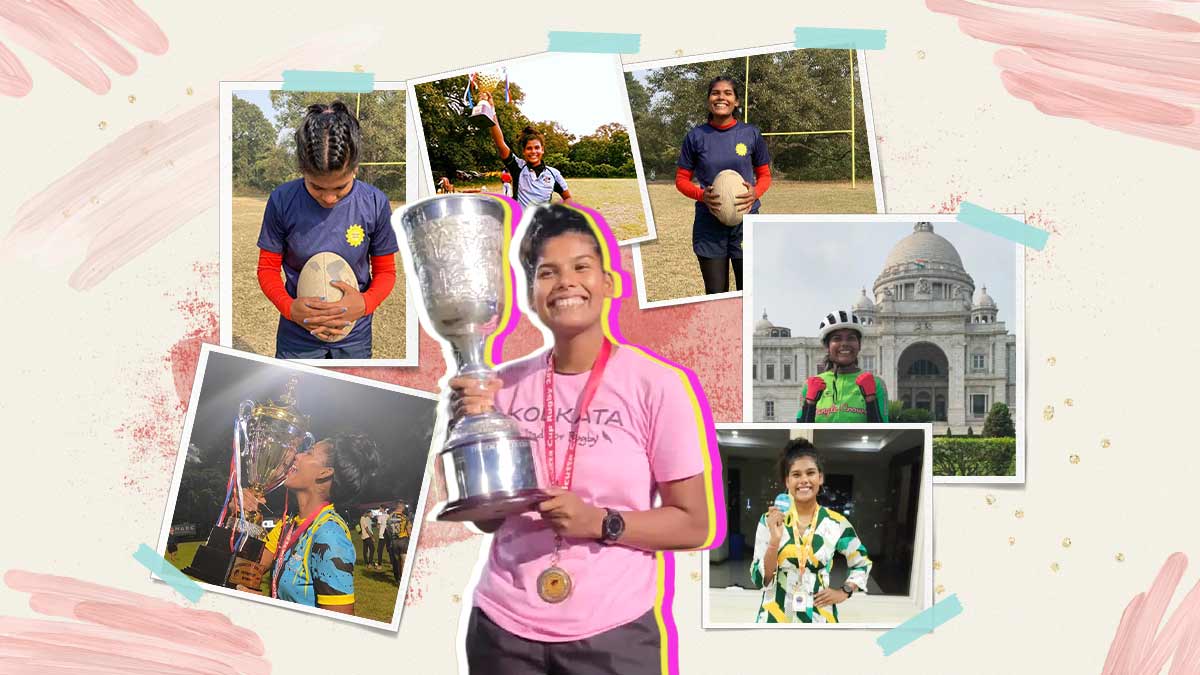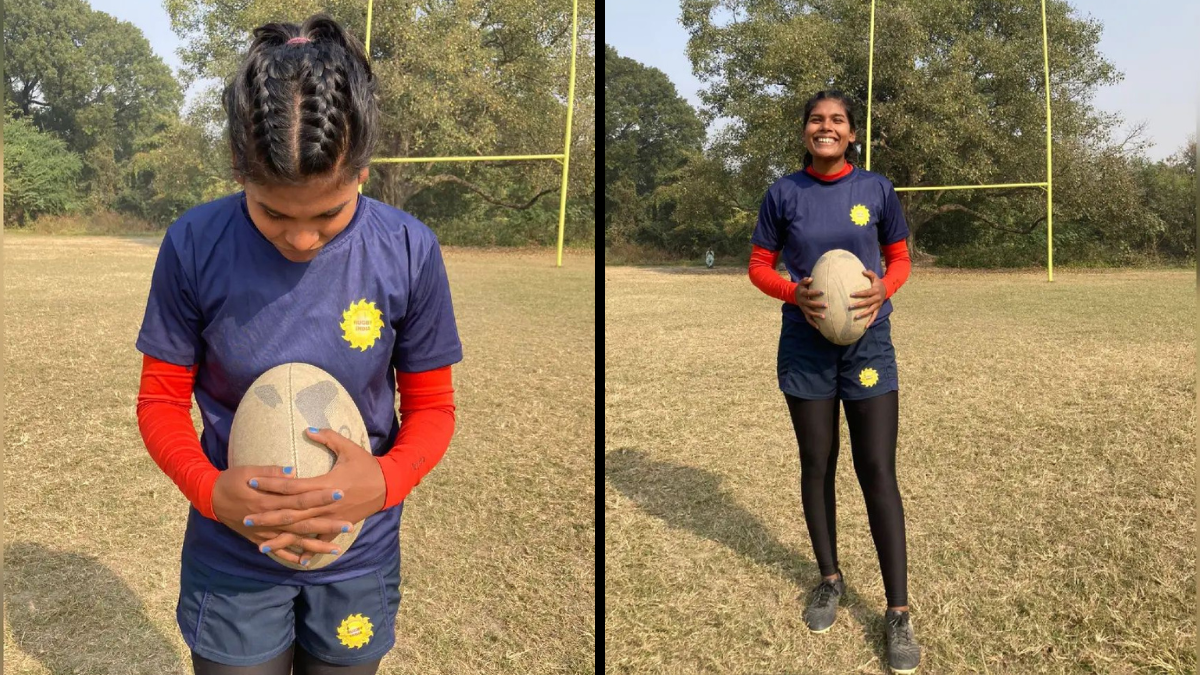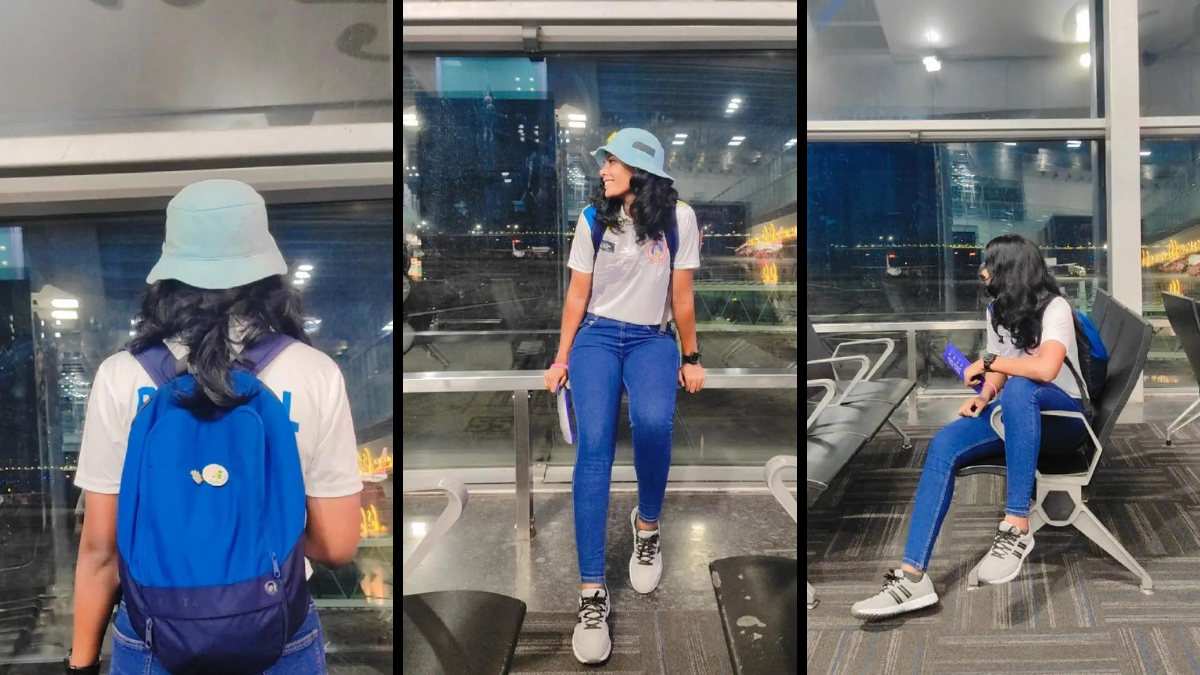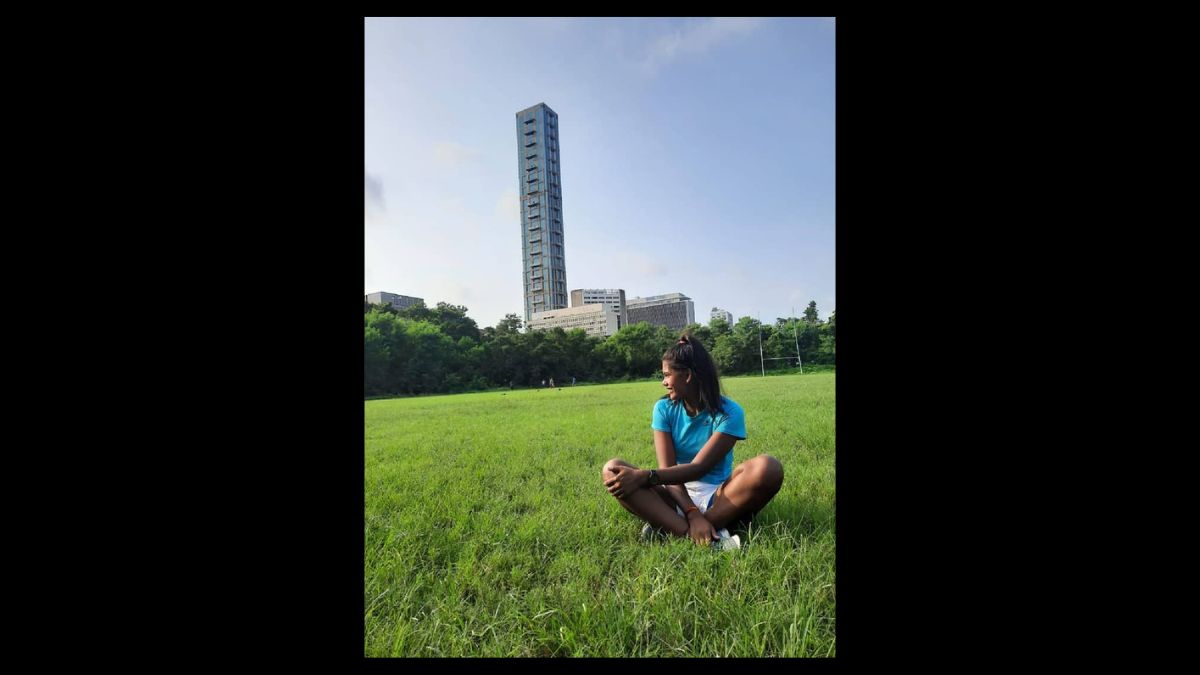
For 23-year-old Lachmi Ekka, getting on an aeroplane is no big deal. She’s travelled to the Philippines, Malaysia, France, and many other countries. Yet, each time she gets on a flight, she records a video for folks back home, who still can't wrap their heads around how planes seem so tiny in the sky, and yet so big in her videos.
Lachmi comes from Saraswatipur, a village in the midst of tea estates in Jalpaiguri, West Bengal. It’s unusual for children here to even finish school, let alone travel abroad. Men from her tribal community mostly find jobs in the tea estates, and women become tea leaf pickers or manage the house. Both of Lachmi’s parents worked in the gardens, barely earning Rs 150 per day. The village didn’t even have electricity till 2011.
For Lachmi, fate had other plans. An odd-shaped ball came knocking at her door when she was around 14 years old. It was her first brush with rugby.

Now at 23, Lachmi’s life is centred around sports. In the day, she’s pursuing a sports management degree, and after the classes she’s found on the field, training to represent India as part of the national women’s rugby team.
“Rugby toh mera zindagi hi change kar diya (Rugby has changed my life),” she said, speaking to HerZindagi over the phone from Kolkata earlier this year.
For more than half her life, however, Lachmi wasn’t even aware of a sport called rugby. But she always enjoyed athletics. She’d even played football a few times with her friends. One day, when she was in Class 7, she heard of a few men from Kolkata organising a training camp in their neighbourhood. Curious, she signed up and was asked to show up the next day at 3 pm.
“Jab jaake dekha, toh anda jaise ball tha ek (When we went, we found an egg-shaped ball),” she recalled. They learned of a new sport in which, unlike football, the ball is passed by hand. On the first day itself, Lachmi got a minor injury on her ankle, but something about it was addictive to her. “Paanch din mein hi mazaa aane lag gaya tha (In just five days, I’d started enjoying the game),” she said.
View this post on Instagram
In a few months, she became quite good at the game. It became all she focused on. Eventually, when she was in Class 8 she got called to represent clubs in their junior teams, and eventually the Bengal team. While in Class 9, she was called to represent India in the under-18 tournament, being held in France.
Her passion came at a cost. She fell behind in academics and failed her Class 10 examinations. Enraged, her parents threatened her that if she did not focus on studies, they’d make her take on all the household responsibilities. Eventually, she decided to give the examination another shot.
Read: Baking History: Kolkata’s Iconic Saldanha Bakery is a Living Legacy of a Trailblazing Woman
This ordeal, however, instilled a sense of discipline in her, leading her to carefully come up with a schedule that allowed time for both study and play. She would wake up in the wee hours and head to tuition at 6 am every day, attend school after that, and head to rugby practice after school ended at 3 pm. “Gaon se nikalna tha (I wanted to leave the village)” was what kept her going.
After finishing school, Lachmi was offered a scholarship by Khelo Rugby to pursue Bachelors in Sports Management. Khelo Rugby is a sport-for-development project run by Jungle Crows, a Kolkata-based rugby club,
Soon, she got calls to train with the national team.
View this post on Instagram
Being from a village, Lachmi wasn’t used to the ways and language of those who joined the team from tier-1 cities.
“Pehle dikkat hota tha, woh zyada baat nahi karte the, hum sab gaon se jo the. Toh coordination nahi ho pata zyada (It used to be difficult to coordinate with them initially, as we are from a village and speak the adivasi language),” she recalled.
Over time, things got better. The icebreaker was when Lachmi opened an account on Instagram. Her teammates followed her and warmed up to her life beyond the field. Matches, consequently, got better too. “Ab mereko sab ‘Lachhu’ bulate hai, pyaar se (Everyone lovingly calls me Lachhu now)”
View this post on Instagram
Alongside completing her Bachelors, Lachmi has visited Laos, Russia, Philippines and several other countries to represent India in international tournaments.
Lachmi, in fact, had another girl from the village, Sandhya Rai, as companion and inspiration. “Humare gaon se koi bhi ladki aise nahi gaye the; main aur Sandhya hi first hai jo gaon se nikalke aise bahar gaye khelne ke liye, flight mein (Sandhya and I are the first ones who managed to leave the village, that too to play a sport, and take a flight for it),” she said.
When Lachmi earned her first salary, Rs 32,000, from a national camp, she handed it over to her mother. It was quite a surprise for her mother, who initially had reservations about her daughter playing this sport.
Her mother, Libani, had never heard of rugby, and couldn’t imagine how playing it could build her daughter’s future. Snarky comments from neighbours didn’t help either.
“Mummy ko sunate the, ‘beti shorts pants pehen ke khelne jaa rahi hai, ladke log ke tarah, kaun shaadi karega isse?’ (Neighbours would tell my mother that if her daughter played a sport wearing shorts, dressed like boys, nobody would marry her),” Lachmi recalled. That was nearly a decade ago. Those same people now invite Lachmi over for meals whenever she’s back in the village, to celebrate her victories and hear tales from her travels.

At least 10 girls from her village, Saraswatipur, have trained and gone on to represent India. For them, Lachmi is an inspiration. “They tell me, ‘Aapke jaise thighs banaungi (We want to have toned thighs like yours)’,” Lachmi shared.
Besides those representing India, over 500 kids from the village are presently engaged in the Khelo Rugby programme. Among them, around 80 have been selected for scholarships and other aid.
Support and respect for Lachmi have only grown over time. “Pehle papa ko bhi zyada izzat nahi karte the. Abhi sab usse ‘Lachmi ka papa’ bulaate hai (My father wasn’t as respected earlier, but now everyone calls him ‘Lachmi’s dad’),” she said, her voice swelling with pride. Her younger brother, too, started playing the sport and is in the running to bag a scholarship.
The irony is, her mother has never seen her in action on the field. Even though most of the games are live-streamed on YouTube, her house doesn’t get network coverage and her mother doesn’t quite understand how to operate a phone. The odd timings don’t help, as, after dark, a fear of elephants doesn’t let anyone venture out of their houses. Lachmi fears that if her mother watches her play the actual sport, she may never allow her to play again, given how rough a contact sport can get.
Rugby is often touted to be a man’s game because bruises and injuries are common in a contact sport. A large part of the game involves tackling, which means an effort to physically push a player to the ground to steal the ball.
If you’re mentally and physically strong, injuries can’t deter you, said Lachmi. “If people tackle properly and one falls properly, nothing will happen.” Lachmi’s only serious injury has been one to the shoulder, which took almost two weeks to recover from.
She elaborated on how the Indian women’s rugby team has been outperforming the men’s team.
At the Bengal level, the girls from Saraswatipur form a full team by themselves for matches. “Yeh team ke saath toh koi aur jeet nahi pata hai (No one comes close to defeating that team),” she giggled.
View this post on Instagram
Lachmi said she owes it all to the people who spotted her, trained her, mentored her and helped her reach newer heights. “Pratap bhaiya, sab kuch mein help karta hai, padhai se lekar sports tak. Woh aur Harry sir mere mummy-papa jaise hai yahan pe. Aur Paul sir toh mera almost bhagwan jaise hai. (Pratap and Harry are like my parents here in Kolkata; and Paul sir is almost god to me).”
Paul Walsh is the founder of Jungle Crows Foundation, the rugby club that runs the Khelo Rugby programme while Harry is Harinder Singh, a former programme manager of Khelo Rugby. Pratap Kundu, the present programme manager, said that for Lachmi and others like her, sport is a means to several ends, and not just sporting success.
“Through rugby, we try to understand whether the kids are going to school, know about health facilities available to them, and help them out where we can,” he said.
“After leaving the village, if they get selected for camps, we help with scholarships and eventually to find jobs too. Around 15 girls have now gone on to play on international forums, through the Khelo Rugby platform. After college, the beneficiaries of the scholarships usually find employment in places like Decathlon (sporting equipment store), Cult (fitness centres) and other sport-related brands.”

Lachmi has become a beacon of inspiration for those in her village, who had resigned themselves to a future confined to tea-gardens, who now realise that there are infinite possibilities awaiting them.
“Agar main rugby nahi khelti, toh aaj yahan nahi pahunch paati. Rugby nahi hota, toh ab shayad main padhai chod ke kahin kaam karti yaa mera shaadi karwa dete. (If I didn’t play rugby, people wouldn’t be here today, I’d probably have quit studies or been married off by now),” said Lachmi.
Also watch this video
Herzindagi video
Our aim is to provide accurate, safe and expert verified information through our articles and social media handles. The remedies, advice and tips mentioned here are for general information only. Please consult your expert before trying any kind of health, beauty, life hacks or astrology related tips. For any feedback or complaint, contact us at [email protected].